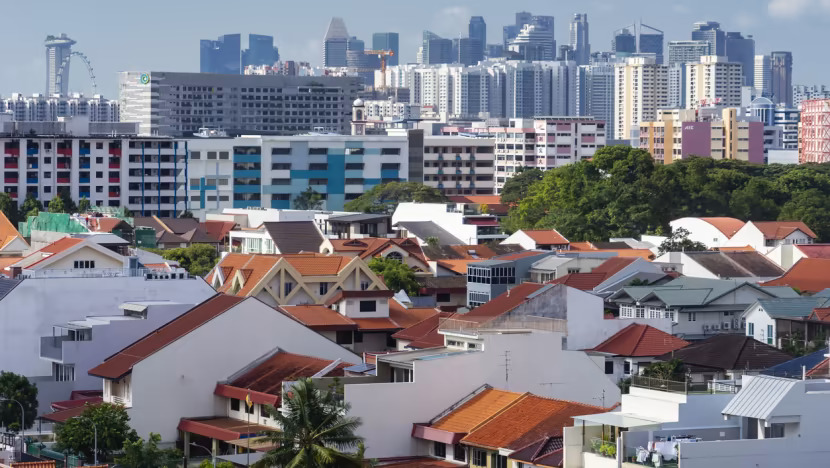SINGAPORE: A family court has granted the green light for an Indonesian woman to go ahead with her bid to seek her share in three Singapore properties she co-owned with her ex-husband and his brother.
Her former husband, who has remarried a Singapore permanent resident, had objected to the woman’s bid. He said the properties in central Singapore were “never matrimonial properties” and instead were purchased as a “family investment” for himself and his brother.
According to a judgment published on Friday (Dec 23), the judge granted the woman leave to proceed with her application for financial relief consequential, while her ex-husband has appealed against the order.
BACKGROUND OF THE CASE
The woman and her ex-husband are both Indonesian citizens and were married in Indonesia in 1992.
They have two adult children and got divorced in 2014 in Indonesia, after the husband commenced divorce proceedings on account of unreasonable treatment by the wife.
The wife was absent during the Indonesian court proceedings, but appealed against the divorce decree afterwards. Her appeal was dismissed.
The proceedings concern three properties in central Singapore that are “of value”. The exact value was not revealed in the judgment.
The properties were co-owned by the woman, her ex-husband and his brother, with the brother holding a 50 per cent share and the couple sharing the other 50 per cent.
The properties had been purchased in 2014 with joint investment funds from the ex-husband, his brother and their father.
The ex-husband’s father subsequently was diagnosed with multiple system atrophy, with severe brain stem disorders and impaired cognitive functions.
The family had a dispute in 2016 over who had the legal power to manage his affairs.
THE LEGAL PROCEEDINGS
Around July 2018, the ex-husband brought a lawsuit in Indonesia against his family members and his wife over this dispute, as well as an alleged dilution of shares in the family company. The lawsuit was dismissed on appeal in 2019.
In February 2021, the ex-husband commenced Singapore High Court proceedings against his brother, seeking an order for the sale of the three properties.
He argued that the properties were never matrimonial properties and were purchased as a family investment with joint investment funds from his late father, his brother and himself.
The man emphasised that this investment was never intended to benefit his ex-wife, and that the ex-wife did not contribute in cash or in kind towards the purchase of the properties.
He added that his ex-wife’s name was included in the title “unintentionally”, as she insisted that her name be inserted alongside his, as at the time, she was still his wife.
When the marriage was on the rocks and heading for a divorce, the woman gave her ex-husband powers of attorney for each property, so he could act without reference to her.
THE WOMAN JOINS THE FRAY
The woman initially did not know about these High Court proceedings. When she found out, she intervened, withdrew her powers of attorney for the three properties and indicated to the court that she would lay claim to her share over the properties.
Justice Aedit Abdullah, who presided over the Singapore High Court proceedings, ordered in March this year for the three properties to be sold, and for the ex-husband’s brother to have conduct of the sale.
The proceeds of sale representing the share in dispute are to be held in escrow pending the determination of any matrimonial property rights between the woman and her ex-husband.
The woman was directed to file her matrimonial application within six weeks, or else the money held in escrow would be released to the ex-husband alone.
The woman accordingly filed her application at the Family Justice Courts in Singapore, seeking leave, as required by the Women’s Charter, to file an application for financial relief consequential on foreign matrimonial proceedings against the ex-husband.
The ex-husband fought against the woman’s court bid, saying the issues could be resolved in Indonesia, under Indonesian laws.
He argued that he was stuck in Singapore and prevented from returning to Indonesia because of COVID-19, and that his home is Indonesia and he is in Singapore only on a social visit pass.
He said seven years have elapsed since the divorce and the long delay was not explained.
In that time, the ex-husband continued to maintain the three Singapore properties and pay for their expenses, with no contributions from the woman.
THE FAMILY COURT’S FINDINGS
In his judgment, District Judge Darryl Soh found that the ex-husband had a real connection to Singapore. His current spouse is a Singapore permanent resident and he lives here with her.
He holds multiple investment properties in Singapore and intends to buy more property following the sale of the three disputed properties.
Judge Soh accepted the ex-wife’s explanation on why she took about seven years to commence her application. She explained that there were other legal proceedings mounted by her ex-husband in Indonesia since the divorce, with time and money being spent addressing and resolving those matters.
Judge Soh granted the woman leave with regards to the three properties. It would be confined to 50 per cent of the sales proceeds of the properties, since the woman and her ex-husband jointly owned only 50 per cent of the properties.
He said it was the ex-husband’s own evidence that the wife’s name was included in the title of the properties during the marriage.
This was sufficient in and of itself to satisfy the definition of a matrimonial asset under the Women’s Charter, said Judge Soh.
“Whether it was intended to be a matrimonial asset or whether there is a dispute as to contributions to that matrimonial asset are separate issues, and are to be considered after leave has been granted and when the court hears the application for financial relief,” he said.

